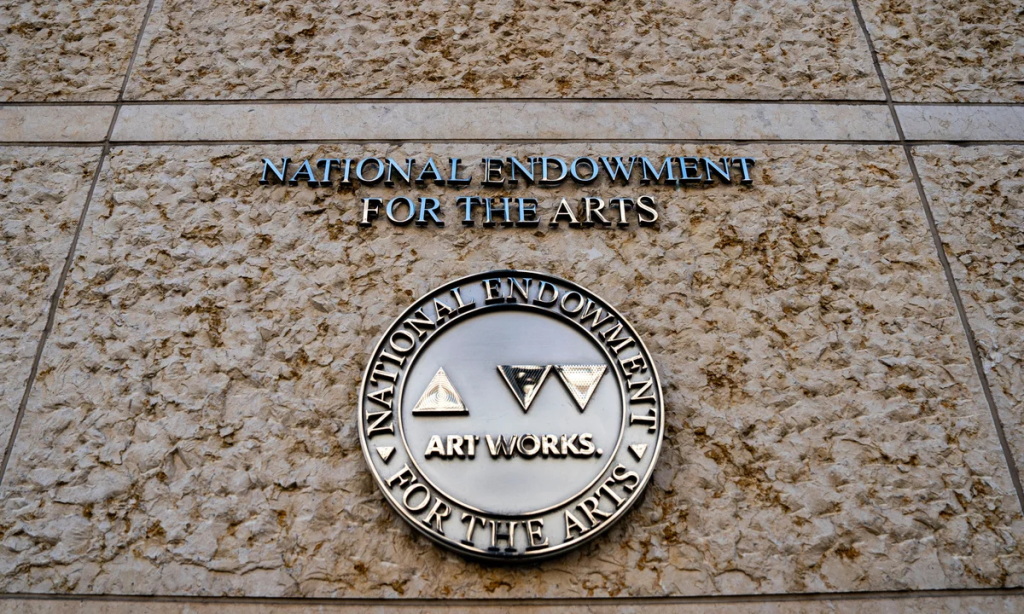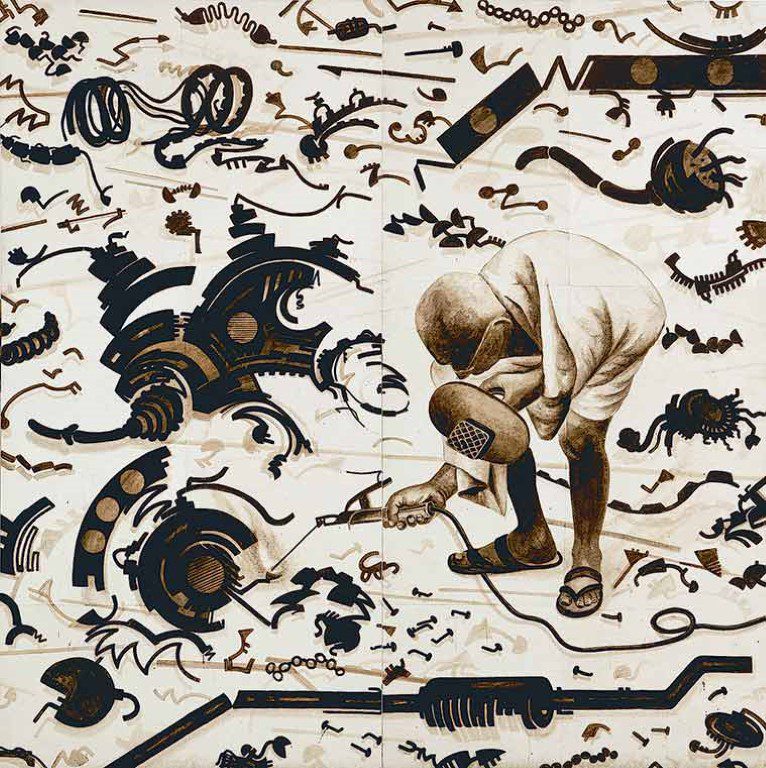National Endowment for the Arts Cancels Grants Amid Trump’s Proposal to Eliminate Federal Arts Funding
The National Endowment for the Arts (NEA) has made headlines after it canceled or withdrew numerous grant offers to arts organizations across the United States. This decision follows a significant budget proposal by President Donald Trump that seeks to eliminate the NEA and its counterpart, the National Endowment for the Humanities (NEH), as part of broader cuts to federal funding for the arts. The move has sparked debate and drawn criticism from many in the arts community, as well as raising concerns about the future of arts funding in America.
Trump’s Budget Proposal Targets NEA and NEH
President Trump’s proposed 2026 budget outlines a plan to eliminate the NEA and NEH entirely. This is not the first time that Trump has sought to cut funding to these cultural institutions. During his first term, the administration attempted and failed to dismantle the NEA and NEH, but with his return to office, these cuts are being revived. The budget proposal has already caused significant alarm in the arts sector, which relies on these agencies for funding and support.
The NEA, established by Congress in 1965, is the largest federal agency funding the arts, providing grants that support everything from theater productions to museum exhibitions. Similarly, the NEH helps fund a wide range of humanities programs, including those at museums, libraries, and universities. Despite the relatively small share of the federal budget that goes toward these agencies, their impact is enormous, supporting local communities and generating jobs across the country.
Changes in Grantmaking Priorities and Canceled Grants
In response to President Trump’s policy direction, the NEA has updated its grantmaking priorities. These new priorities focus on initiatives that reflect the nation’s “rich artistic heritage,” as emphasised by the president. Consequently, many of the agency’s previously approved grants, especially those supporting underrepresented groups, artists of color, and diverse communities, have been canceled.

Some of the specific areas of focus in the NEA’s new funding priorities include:
- Supporting historically Black colleges and universities (HBCUs) and Hispanic-serving institutions.
- Celebrating the 250th anniversary of American independence.
- Promoting Artificial Intelligence (AI) competency.
- Empowering houses of worship to serve communities.
- Assisting with disaster recovery and supporting the military and veterans.
- Providing economic development for Asian American communities and more.
This shift in priorities reflects a broader push to reshape the cultural landscape of America, with a clear emphasis on patriotism and more traditional representations of American identity. The move has left many arts organizations disillusioned, especially as projects that promote diversity and community engagement are now considered outside the new funding guidelines.
Impact on Arts Organizations
Among the affected arts groups are some of the country’s most prominent arts organizations, including the Berkeley Repertory Theatre, the Open Studio Project, and Central Park Summer Stage in New York City. These organisations received emails from the NEA notifying them of the cancelled grants, which were once approved but are now being rescinded due to the new focus on presidential priorities.
One example of this is the Open Studio Project, a Chicago-area nonprofit that was awarded a two-year grant to support arts education for elementary school students. The organization’s executive director, Rob Lentz, expressed frustration, noting that the nonprofit sector is under siege, and arts groups, in particular, are vulnerable.
Similarly, Cornerstone Theatre Company in Los Angeles saw a $40,000 grant withdrawn. This grant was intended to support a project that explored the intersection of theatre and the history of American democracy, an initiative that the NEA determined no longer fit within the agency’s redefined priorities.
The NEA has stated that recipients of cancelled grants may appeal the decision, but the wave of cancellations has left many artists and cultural organisations feeling discouraged. With funding already scarce, these cuts will undoubtedly have a profound effect on communities that rely on the arts for education, expression, and cultural identity.
Political and Public Response
The cancellation of NEA grants has prompted a strong response from arts advocates, lawmakers, and organisations who argue that the arts play a crucial role in the economy and in fostering a rich cultural identity. Erin Harkey, CEO of Americans for the Arts, expressed concern over the long-term damage to the arts sector, stating that the NEA plays a vital role in supporting not only artists but also arts organisations across the country.

Many believe that eliminating or reducing federal support for the arts would be detrimental to local economies. Arts organisations, especially small ones, generate jobs and contribute to the economic vitality of communities nationwide. According to the National Assembly of State Arts Agencies, the arts generate billions of dollars in economic activity each year, supporting hundreds of thousands of jobs.
Furthermore, the NEA’s diverse and far-reaching grants have historically been bipartisan, with both Democrats and Republicans recognising the value of the arts to the American public. The current push to eliminate the NEA, however, threatens to undo decades of bipartisan support for the arts, leaving a critical gap in funding for creative and cultural projects nationwide.
What Lies Ahead for Arts Funding?
While Trump’s proposed 2026 budget is still in the early stages and must pass through Congress before it can be enacted, the future of federal arts funding remains uncertain. In previous years, Congress has blocked Trump’s attempts to eliminate funding for the NEA and NEH, but with growing political divisions and an ongoing push for reduced government spending, the outcome is far from clear.
Arts groups across the country are gearing up to fight for the preservation of federal funding for the arts, but the battle is expected to be long and contentious. In the meantime, many organizations are exploring alternative sources of funding and raising awareness about the importance of sustaining the arts as a vital part of American culture and society.
The NEA’s Role in America’s Cultural Landscape
The NEA’s role in the American cultural landscape cannot be overstated. For over half a century, the agency has supported countless projects that enrich the nation’s cultural fabric, from funding public arts education to supporting artists in every congressional district. The recent changes in grant priorities and proposed budget cuts have cast a shadow over the future of arts funding in America.
As the NEA continues to navigate its future under the Trump administration, one thing remains clear: the fight for the future of the arts in America is far from over. Arts organizations, artists, and advocates must continue to rally together to ensure that the value of the arts is recognized and that these vital programs continue to thrive for generations to come.
Image Courtesy – The Guardian
Contributor





